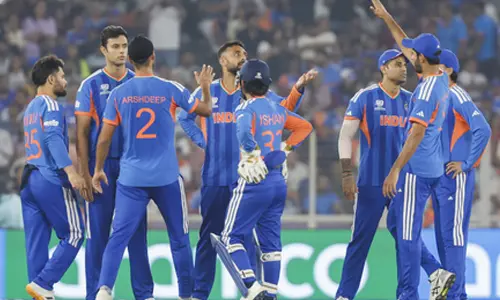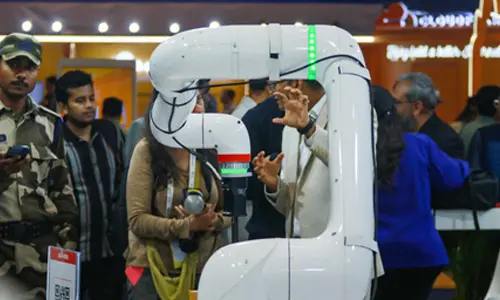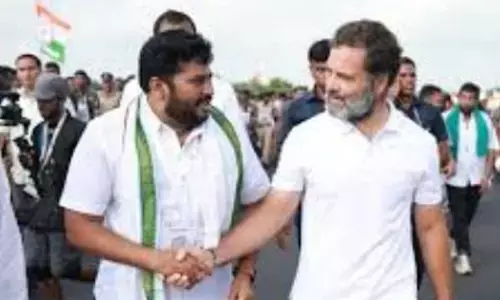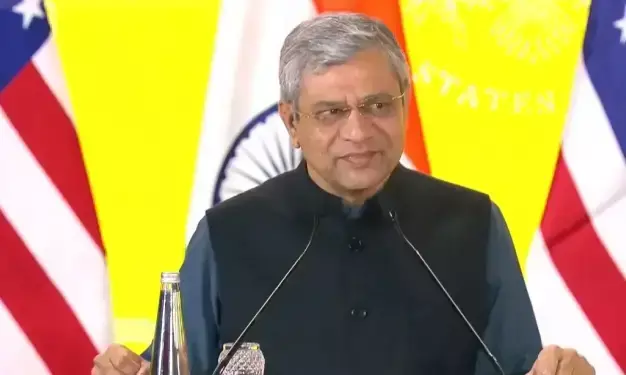General studies paper - I

Representational image
Civil service aspirants should know the genesis of civil services during the British period
Genesis of civil services
Civil service aspirants should know the genesis of civil services during the British period. Lord Macaulay submitted a report to the British Parliament to recruit talented people to Indian Civil services. Based on that the ICS was started in 1854. In 1855 the first competitive examination was held in Britain.
In 1857 after the first war of independence Indian administration changed from the East India company to the British government. In 1864 for the first time an Indian was successful in ICS examinations. He is Satyendra Nath Tagore, brother of Rabindranath Tagore. For the first time in 1922 this competitive examination was held on Indian soil. So, we are celebrating the centenary of civil services examination in India this year. During the colonial regime the entire administrative machinery was in the hands of ICS officers.
In 1893 Britishers introduced imperial police service and the first examination was held in England in 1893. 10 candidates selected in the exam were appointed as probationary assistant superintendent of police. Only after 1920 Indians were recruited for the imperial police service. In 1865 the imperial Forest service was started. In 1887 the administrative service structure was divided into three stages – imperial, provincial and subordinate services. In 1919 an Indian government act was enacted to give much more administrative powers to Indians. The way these officers tried to snub the freedom movement created distrust about the services in public. After independence in the Constitution assembly there was a demand to abolish civil services – ICS. The salaries of ICS officers were much higher till independence. When the ministers salaries were ranging from Rs.750 to 1000, an ICS officer with the rank of secretary was drawing rupeesRs.2000-Rs.4000.
In 2000 March under the chairmanship of Justice MN Venkatachaliah a national commission was appointed to study the constitutional provisions. The committee has suggested several points with respect to the training of civil service officers and their working pattern. They recommendedthatthegraduatesfromtheuniversitiesshouldberecruitedintocivilservicesand training is to be given on the central and state government administrative methodology.
They further recommended that the civil servants should acquire knowledge about different social issues besides national security, science and technology and environmental policies. In that way they can be made as best administrators. After retirement it is suggested that they should not be nominated to any constitutional post. It was the recommendation of PC Hota committee in 2004. Such nominations will lead to favouritism by civil servants to get plum postings after retirement.
Syllabus of General
studies paper I
UPSC has given a comprehensive note on the syllabus of general studies paper one in mains examinations. It includes, history of modern India and Indian culture, geography of India, Constitution of India and Indian polity, current national issues and topics of social relevance.
This part is intended to test the candidates awareness of current national issues and topics of social relevance in present-day India.
They include the Indian economy and issues relating to planning, and employment. Issues arising from the social and economic exclusion of large sections from the benefits of development. Issues relating to the development and management of human resource. Public health, health education and ethical concerns regarding healthcare. Layi enforcement, internal security. Issues relating to good governance and accountability.
Environmental issues, ecological preservation, conservation of natural resources and national heritage. When we look at this syllabus it is understood that a comprehensive outlook on the present day India is necessary for the candidate. Let us have a look at the way questions appeared in general studies paper one in the year 2019.
GS Paper I -2019
g The1857 up rising was the culmination of the recurrent bigand small local rebellions that had occurred in the preceding hundred years of British rule. 150 words – 10marks
g Examine the link ages betweenthe 19th century's Indian renaiss anceandtheemergence of national identity. 150 words - 10marks
g Many voices had strengt enedandenrichedthenationalistmovementduringthe Gandhian phase. 250 words- 15marks
These 3 questions relate to the freedom movement. Unless the candidate is thorough with the subject, he cannot answer the questions in a good perspective. Nationalist movement and the influence of Gandhi are the main points to be stressed. Regarding the wordage also one should be careful the first two questions are to be answered in 150 words, whereas the third question can be little elaborated.
Art & Culture
g Highlight the Central Asian and Greco- bactrian elements in the Gandharaart.
g What makes Indian society unique in sustaining its culture? Discuss
g What are the challenges to our cultural practises in the name of secularism?
g Do we have cultural pockets of small India all over the nation? Elaborate with examples.
The cultural background of India and the influence of other countries' traditional arts are to be discussed in the answer. The age-old traditions of India are unique and they are the models for theothercountriesalso.Ourvediccultureisappreciatedbyoneandall.Unityindiversityisthe strength of India. India practices secularism.
Geography
g Assess the impact of global warming on the coral life system withexamples.
g Discussthecausesofdepletionofmangrovesandexplaintheirimportancein maintaining personal ecology.
g DiscussthefactorsoflocalisationofAgrobasedfoodprocessingindustriesofNorthwest India.
g What is water stress? How and why does it differ regionally in India?
g Howcanthemountainecosystemberestoredfromthenegativeimpactofdevelopment initiatives and tourism?
g Howisefficientandaffordableurbanmasttransportkeytotherapideconomic development of India?
g Howdooceancurrentsandwatermassesdifferintheirimpactsonmarinelifeand coastal environment? Give suitable examples.
In 2019 more importance was given for the segment geography. That is why the candidate should not ignore any segment of general studies paper I syllabus.
Best of luck.
(The author is retired additional director general Doordarshan, Delhi)








